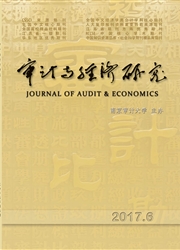

 中文摘要:
中文摘要:
深入探讨发展低碳经济的主要影响因素,对转变经济发展方式、建设资源节约型和环境友好型社会有着重要的理论和现实意义。因此,基于扩展的STIRPAT模型,利用1990年—2009年统计数据,对我国发展低碳经济的主要影响因素及其贡献率进行了实证研究。结果表明,人均国内生产总值、人口规模、单位能耗碳排放量、能源消费结构等对碳排放量有显著的正向影响,而产业结构、城市化水平、国际贸易分工对碳排放量影响不显著;其中人均国内生产总值持续增长是碳排放量增加的最大正向影响因素,且其贡献率也最大;能源强度变动是碳排放量增加的最大负向影响因素,其对碳排放量的增加具有一定的抑制作用。
 英文摘要:
英文摘要:
Profound discussion on the main factors affecting low-carbon economic development has an important theoretical and practical significance on changing developmental patterns and building a resource-saving and environment-friendly society.From aspects of the population,economic development level,energy intensity,energy consumption per unit of carbon emission,energy consumption structure,industrial structure,urbanization and division of labor factors in international trade,this paper discusses the main factors affecting low-economic development.And by using China's provincial panel data from 1995 to 2009,this paper extends STIRPAT model and conducts an empirical study on the main factors and contribution rate affecting low-carbon economy development.The results show that: GDP per capita,energy intensity,population,energy consumption per unit of carbon emissions has a significant positive effect on carbon emission.The industrial structure,urbanization level and the international trade division has a very small impact on carbon emission;continued growth in GDP per capita is the largest positive contribution on the growth of carbon;while change in energy intensity has an inhibition in the growth of carbon emission.According to the above empirical results,this paper presents a policy recommendation to maximize the existing energy structure,industry structure,develop more low-carbon industry and its technological innovation,and control the population size and public awareness in this regard simultaneously.
 同期刊论文项目
同期刊论文项目
 同项目期刊论文
同项目期刊论文
 期刊信息
期刊信息
